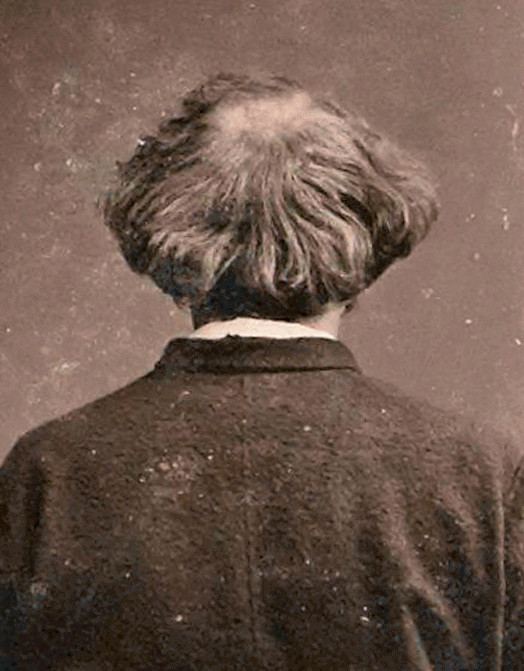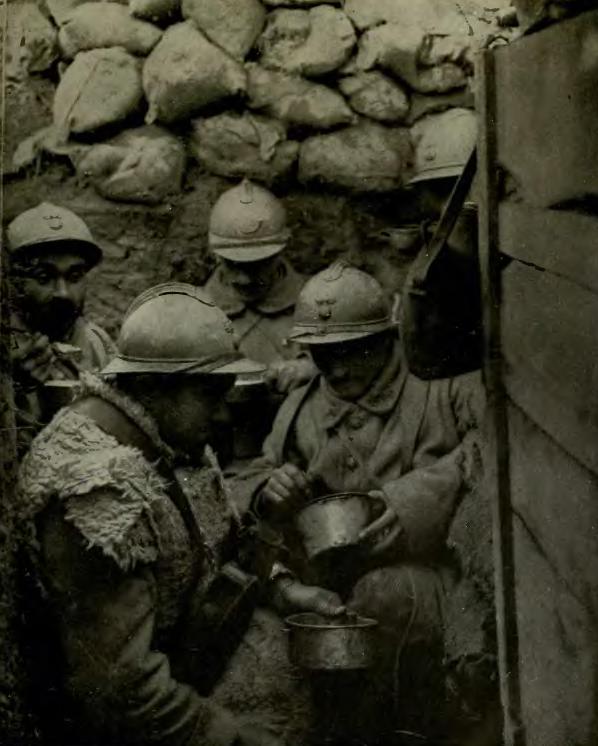|
Octave Pradels
Octave Pradels (15 February 1842 – 30 April 1930) was a French poet, novelist, vaudevilliste and lyricist. Biography Octave Frederick Pradels published his first monologues, tales in verse and songs in 1883. Among his greatest successes were ''Ça commençait si gentiment'', ''La Chula'', ''Dans l'oasis'', ' (written in collaboration with ). His songs were created in particular by Kam-Hill, Anna Judic, Amiati (at the Eldorado) and Thérésa. A director of the Théâtre des Capucines, Octave Pradels was also president of the SACEM from 1895 to 1898. After a first marriage in 1865 in Villefranche-sur-Mer, with Angélique Thérèse De Villa-Rey, daughter of a commander of the Monaco Marine, who gave him a first son, Édouard Joseph, Pradels supposedly married the divette Maria Theresa Mirbeau in 1873. They had a son, unrecognized by the mother, Edmond André, born 26 July 1878 in the 17th arrondissement of Paris, who collaborated with his father as lyricist and composer ... [...More Info...] [...Related Items...] OR: [Wikipedia] [Google] [Baidu] |
Nadar
Gaspard-Félix Tournachon (5 April 1820 – 20 March 1910), known by the pseudonym Nadar, was a French photographer, caricaturist, journalist, novelist, balloon (aircraft), balloonist, and proponent of Aircraft#Heavier-than-air – aerodynes, heavier-than-air flight. In 1858, he became the first person to take aerial photographs. Photographic portraits by Nadar are held by many of the great national collections of photographs. His son, Paul Nadar (1856–1939), continued the studio after his death. Life Gaspard-Félix Tournachon (also known as Nadar) was born in early April 1820 in Paris, though some sources state he was born in Lyon. His father, Victor Tournachon, was a printer and bookseller. Nadar began to study medicine but quit for economic reasons after his father's death. Nadar started working as a caricaturist and novelist for various newspapers. He fell in with the Parisian bohemian group of Gérard de Nerval, Charles Baudelaire, and Théodore de Banville. His friends ... [...More Info...] [...Related Items...] OR: [Wikipedia] [Google] [Baidu] |
Villefranche-sur-Mer
Villefranche-sur-Mer (, ; oc, Vilafranca de Mar ; it, Villafranca Marittima ) is a resort town in the Alpes-Maritimes department in the Provence-Alpes-Côte d'Azur region on the French Riviera and is located south-west of the Principality of Monaco, which is just west of the French-Italian border. Geography Villefranche-sur-Mer is immediately to the east of the city of Nice, along Mont Boron, Mont Alban and Mont Vinaigrier, and south-west of Monaco. The bay (''rade'') of Villefranche is one of the deepest natural harbours of any port in the Mediterranean Sea and provides safe anchorage for large ships from easterly winds. Reaching depths of 320 ft (95 m) between the Cape of Nice and Cap Ferrat; it extends to the south to form a 1,700 ft (500 m) abyss known as the undersea Canyon of Villefranche at about one nautical mile off the coastline. The Bay is the place where the American 6th Fleet moors when cruising the Mediterranean Coast. The city limits ext ... [...More Info...] [...Related Items...] OR: [Wikipedia] [Google] [Baidu] |
19th-century French Novelists
The 19th (nineteenth) century began on 1 January 1801 ( MDCCCI), and ended on 31 December 1900 ( MCM). The 19th century was the ninth century of the 2nd millennium. The 19th century was characterized by vast social upheaval. Slavery was abolished in much of Europe and the Americas. The First Industrial Revolution, though it began in the late 18th century, expanding beyond its British homeland for the first time during this century, particularly remaking the economies and societies of the Low Countries, the Rhineland, Northern Italy, and the Northeastern United States. A few decades later, the Second Industrial Revolution led to ever more massive urbanization and much higher levels of productivity, profit, and prosperity, a pattern that continued into the 20th century. The Islamic gunpowder empires fell into decline and European imperialism brought much of South Asia, Southeast Asia, and almost all of Africa under colonial rule. It was also marked by the collapse of the la ... [...More Info...] [...Related Items...] OR: [Wikipedia] [Google] [Baidu] |
Éditions Du Seuil
Éditions du Seuil (), also known as ''Le Seuil'', is a French publishing house established in 1935 by Catholic intellectual Jean Plaquevent (1901–1965), and currently owned by La Martinière Groupe. It owes its name to this goal "The ''seuil'' (threshold) is the whole excitement of parting and arriving. It is also the brand new threshold that we refashion at the door of the Church to allow entry to many whose foot gropes around it" (Jean Plaquevent, letter dated 28 December 1934). Description Éditions du Seuil was the publisher of the ''Don Camillo'' series, and of Chairman Mao Zedong's ''Little Red Book''. The large sales that these generated have allowed the house to publish more specialized titles, particularly in the social sciences. Seuil is widely respected in the publishing world, maintaining good relations with its authors. Seuil has published works by Jacques Lacan, Roland Barthes and Philippe Sollers (in his first period), and later by Edgar Morin, Maurice Genevoix ... [...More Info...] [...Related Items...] OR: [Wikipedia] [Google] [Baidu] |
Armand Silvestre
Paul Armand Silvestre (18 April 1837 – 19 February 1901) was a 19th-century French poet and ''conteur'' born in Paris. He studied at the École polytechnique with the intention of entering the army, but in 1870 he entered the department of finance. Silvestre had a successful official career, was decorated with the Legion of Honour in 1886, and in 1892 was made inspector of fine arts. Armand Silvestre made his entry into literature as a poet, and was reckoned among the Parnassians. Works Armand Silvestre's works were published mainly by Alphonse Lemerre and Gervais Charpentier. Some of his poems were set to music by Gabriel Fauré, under the form of mélodies for one voice and piano (''Le Secret'', ''L'Automne''...). Thirteen of his poems were set by André Messager. Silvestre's poem ''Jours Passés'' was set in music by Léo Delibes under the title ''Regrets''. Poetry *''Rimes neuves et vieilles'', with a preface by George Sand (1866) see on Gallic*''Les Renaiss ... [...More Info...] [...Related Items...] OR: [Wikipedia] [Google] [Baidu] |
Paulus (singer)
Jean-Paulin Habans, known as Paulus (6 February 1845 - 1 June 1908), was a French singer, entertainer and theatre entrepreneur of the ''Belle Époque''. Paulus created a complete transformation in popular singing style and in doing so he became the most popular male singer in Paris in the 1870s and 1880s. His career clearly marked a turning point in the history of French chanson: the start of the era of stardom. Early life and career Jean-Paulin Habans was born in Saint-Esprit, a suburb of Bayonne. While he maintained all his life that he was born into a family of small shopkeepers, in reality and according to his birth certificate his father was unknown and Habans the name of his mother, born Jeanne-Marie Habans, with no profession. The new genre was typified by "a frantic, disjointed movement that was seen as ..epileptic and puppet-like" that the theatre critic Francisque Sarcey termed ''gambillard'' in relation to the mimicking of the gesticulations and dislocations of puppets ... [...More Info...] [...Related Items...] OR: [Wikipedia] [Google] [Baidu] |
Jeanne D'Arc
Joan of Arc (french: link=yes, Jeanne d'Arc, translit= �an daʁk} ; 1412 – 30 May 1431) is a patron saint of France, honored as a defender of the French nation for her role in the siege of Orléans and her insistence on the coronation of Charles VII of France during the Hundred Years' War. Stating that she was acting under divine guidance, she became a military leader who transcended gender roles and gained recognition as a savior of France. Joan was born to a propertied peasant family at Domrémy in northeast France. In 1428, she requested to be taken to Charles, later testifying that she was guided by visions from the archangel Michael, Saint Margaret, and Saint Catherine to help him save France from English domination. Convinced of her devotion and purity, Charles sent Joan, who was about seventeen years old, to the siege of Orléans as part of a relief army. She arrived at the city in April 1429, wielding her banner and bringing hope to the demoralized French ... [...More Info...] [...Related Items...] OR: [Wikipedia] [Google] [Baidu] |
Poilu
Poilu (; ) is an informal term for a late 18th century–early 20th century French infantryman, meaning, literally, ''the hairy one''. It is still widely used as a term of endearment for the French infantry of World War I. The word carries the sense of the infantryman's typically rustic, agricultural background, and derives from the bushy moustaches and other facial hair affected by many French soldiers after the outbreak of the war as a sign of masculinity. The poilu was particularly known for his love of pinard, his ration of cheap wine. The image of the dogged, bearded French soldier was widely used in propaganda and war memorials. The stereotype of the Poilu was of bravery and endurance, but not always of unquestioning obedience. At the disastrous Chemin des Dames offensive of 1917 under General Robert Nivelle, they were said to have gone into no man's land making baa'ing noises—a collective bit of gallows humour signalling the idea that they were being sent as lambs ... [...More Info...] [...Related Items...] OR: [Wikipedia] [Google] [Baidu] |
Revanchism
Revanchism (french: revanchisme, from ''revanche'', "revenge") is the political manifestation of the will to reverse territorial losses incurred by a country, often following a war or social movement. As a term, revanchism originated in 1870s France in the aftermath of the Franco-Prussian War among nationalists who wanted to avenge the French defeat and reclaim the lost territories of Alsace-Lorraine. Revanchism draws its strength from patriotic and retributionist thought and is often motivated by economic or geopolitical factors. Extreme revanchist ideologues often represent a hawkish stance, suggesting that their desired objectives can be achieved through the positive outcome of another war. It is linked with irredentism, the conception that a part of the cultural and ethnic nation remains "unredeemed" outside the borders of its appropriate nation-state. Revanchist politics often rely on the identification of a nation with a nation state, mobilizing sentiments of ethnic nat ... [...More Info...] [...Related Items...] OR: [Wikipedia] [Google] [Baidu] |
Chauvinism
Chauvinism is the unreasonable belief in the superiority or dominance of one's own group or people, who are seen as strong and virtuous, while others are considered weak, unworthy, or inferior. It can be described as a form of extreme patriotism and nationalism, a fervent faith in national excellence and glory. In English, the word has come to be used in some quarters as shorthand for male chauvinism, a trend reflected in ''Merriam-Webster's Dictionary'', which, as of 2018, begins its first example of use of the term ''chauvinism'' with "an attitude of superiority toward members of the opposite sex". As nationalism According to legend, French soldier Nicolas Chauvin was badly wounded in the Napoleonic Wars and received a meager pension for his injuries. After Napoleon abdicated, Chauvin maintained his fanatical Bonapartist belief in the messianic mission of Imperial France, despite the unpopularity of this view under the Bourbon Restoration. His single-minded devotion to his ... [...More Info...] [...Related Items...] OR: [Wikipedia] [Google] [Baidu] |






